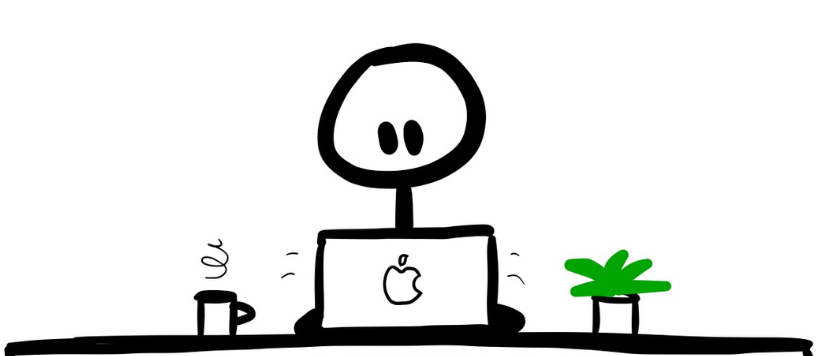Ondrej Markus
Entrepreneur in ed-tech, building the future of education as a founder and CEO at Playful.
I write about the future of education, designing learning games, and running a startup.
I'm a generalist, introvert, gamer, and optimizing to be useful.

Write public reflections

I have been writing for 2 years now.
The first year I didn’t publish reflections (or almost anything else, really). I was busy getting hopelessly stuck on articles I decided not to share after tens of hours of work. Fun times.
The second year I started doing monthly and then weekly public reflections, and it changed everything for me.
This article is my case for why public reflections are the best way to start writing. And, if that’s something you want, how to start doing them.
Why? Get better at getting better.
Reflections help you learn faster. They are an opportunity to look at what you’re doing, think about what does and doesn’t work, and do better.
You can do this in different ways:
- Talking about your experiences with friends
- Writing into a private journal
- Thinking while starring at a blank wall (my personal favorite)
But here, I want to focus on why writing reflections and sharing them with others is worth your time and energy**:**
- Writing improves understanding: When you describe your experiences, it helps you make sense of them. As a result, you better understand yourself and what you are doing. Writing reflections is the ultimate self-reflection engine.
- Writing improves self-expression: As you practice writing, you will get better at sharing your thoughts in a clear, insightful, and entertaining way. Writing improves your communication skill across all areas of work and life.
- Writing publicly opens you to unexpected opportunities: When people know what you’re doing, they are more likely to let you know about relevant opportunities. You can find your next job or project by talking openly about what you do.
(If writing is entirely new to you and doing it in public feels impossibly intimidating, start by reflecting in private. And come back here in a month.)
How? Make it easy.
Make the process of writing reflections as easy as possible. Because if it’s not easy (and ideally enjoyable), you will stop doing it.
Writing takes effort. And once the effort is higher than the benefits of doing it, you will quit. So start small and build your way up or sideways to a reflection style that works for you.
- Choose a place: Start sharing your reflections where you already spend time. You don’t need to have a website. It is better to start sharing where you and your people already are: Twitter, Instagram, LinkedIn, or just send it as an email to 5 friends (that’s how I started).
- Find your style: There are endless ways to do this, so don’t overthink at first and just make your reflection as it feels right to you. If you go through my reflections, you’ll notice I don’t have a template. I write what makes sense that month/week. Try different things. There’s no need to be consistent, just honest.
- Stick to a schedule: I’ve written monthly for 7 months and then switched to weekly reflections for 14 weeks. Now I’m doing quarterly. Experiment with various rhythms to find what suits you. But always have some schedule that compels you to publish imperfect things. (I recommend once a month as a good starting point.)
What? Your learning first.
The biggest value of writing public reflections is your own learning. Remember that when you choose what to write about. The reflecting process should be useful to you even if nobody reads the result.
These are some of my favorite questions for finding what’s worth reflecting on:
- What’s the idea you keep thinking about lately?
- What surprised you in the last week/month?
- What problems/challenges have you solved recently (or failed to solve)?
- What problems/challenges are you trying to solve right now?
- What/who inspired you the most in the last week/month?
Dance with the fear of sharing
Even after a year of writing 23 reflections in public, I’m still terrified. Sharing personal thoughts is scary.
It’s natural and probably the same reason why people place the fear of public speaking above death. (Says some research.)

Death > Talking in public
My fear didn’t go away. I just got used to it. I dance with my fear.

Dancing with my fear
The trick is: Don’t let your fear lead the moves. Take charge of the moves.
Your fear isn’t going anywhere, but you can get used to it. And one day, you won’t even notice it’s still there, just hanging out

Fear hangs out with me
What’s the worst that could happen?
I want to take you through my reasoning of the worst and best things that could happen when you write public reflections.
The worst things that could happen:
- Some people will think your ideas are stupid: What they’re saying is, “This isn’t for me." And that’s fine. Nothing is for everyone.
- Some people will say mean things: Same as 1). I know it hurts (I’ve been there), but some people are having a bad day, and there is nothing you can do about it.
- Nobody will pay attention: This doesn’t affect your learning at all. And, in the beginning, this might be a good thing because it will make you more relaxed to share openly. (I was sharing my reflections with just 5 to 10 of my friends for months before I tried Twitter.)
- You will share something you later regret: You can always take things down. And even if you couldn’t for some reason, personally, I’d rather regret sharing a little too much than not getting out there at all.
The best things that could happen:
- You become a better writer, storyteller, and overall communicator: This is absolutely in your control and only requires practice and dancing with your fear. If nothing else happened, this is worth the effort.
- Your people will find you: As you reflect in public, you show who you are – your values, what you want, how you think – and people like you will be drawn to you. They will want to work with you and be friends with you.
- Your dream job will find you: Same as 2) but someone will offer you a job because they like what you do and how you think. And they know you well because they could follow your thoughts for months or years.
Overall, I think there is next to no real downside to writing in public, and the potential upside is huge.
But I’m not here to push you into doing something you don’t want to do. I might be wrong. What’s right for me might not be right for you. That’s okay. Take what you like and leave the rest. (Even if “the rest” is everything. :D)
To actually start doing it, you need to decide you want it more than you fear it.
Do you want the good more than you fear the bad?
If you do, go for it.
(I’d be honored to get your first reflection. Even if I’m a stranger to you, that could be a good thing. Sometimes it’s easier to share with strangers than with the people who know you well. Here’s my email.)